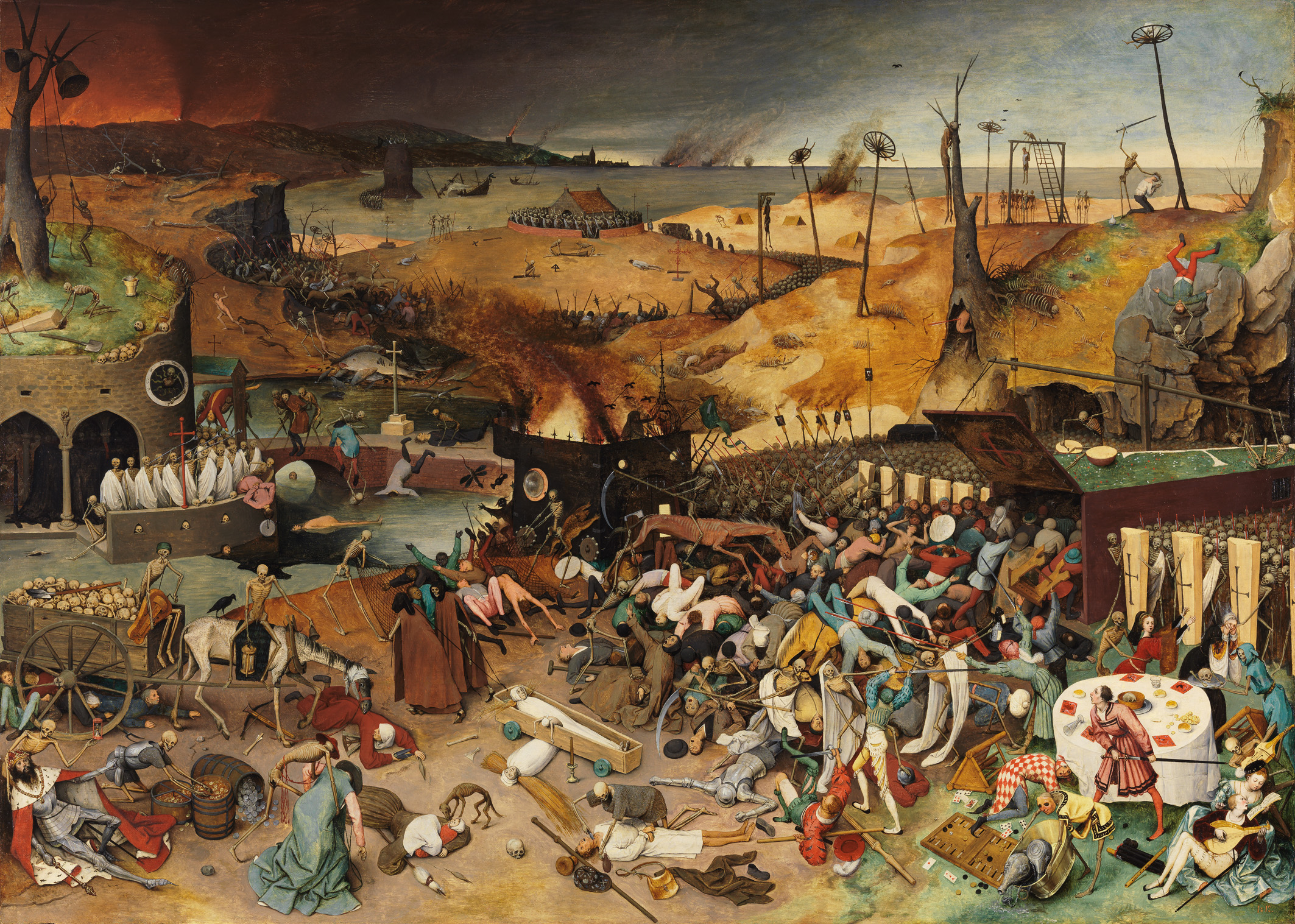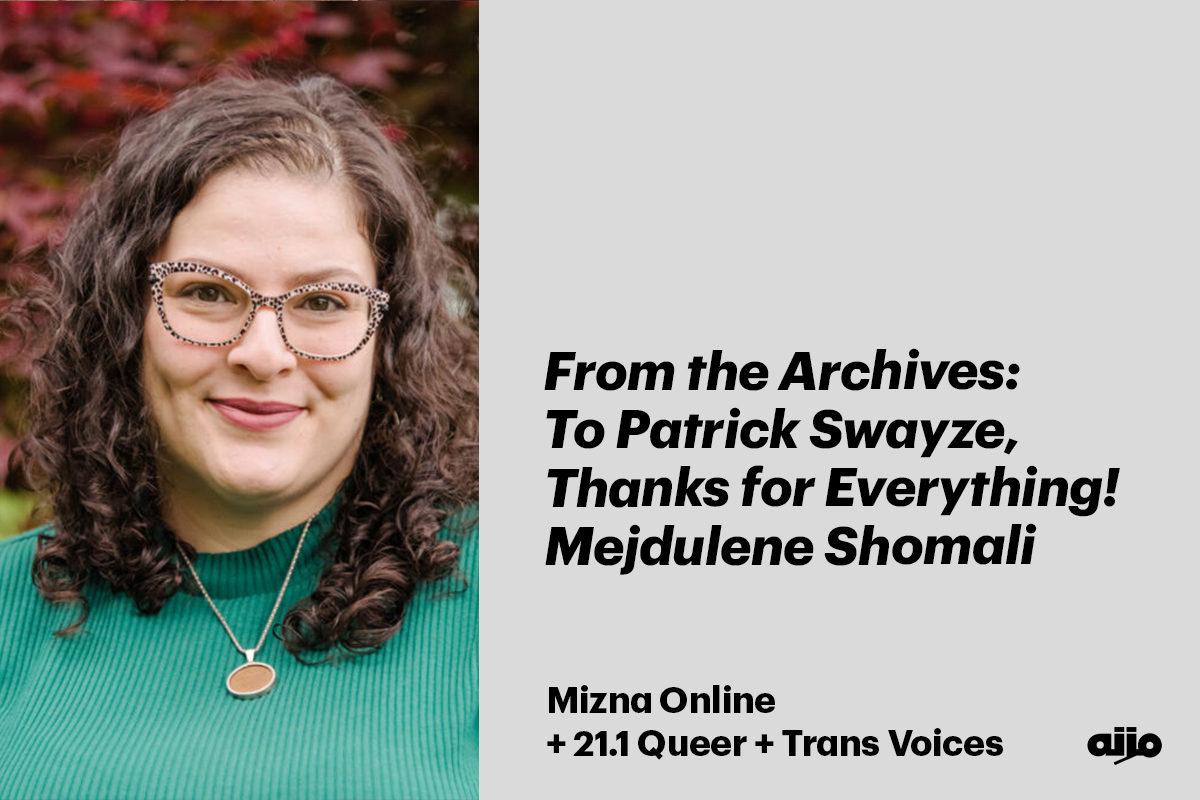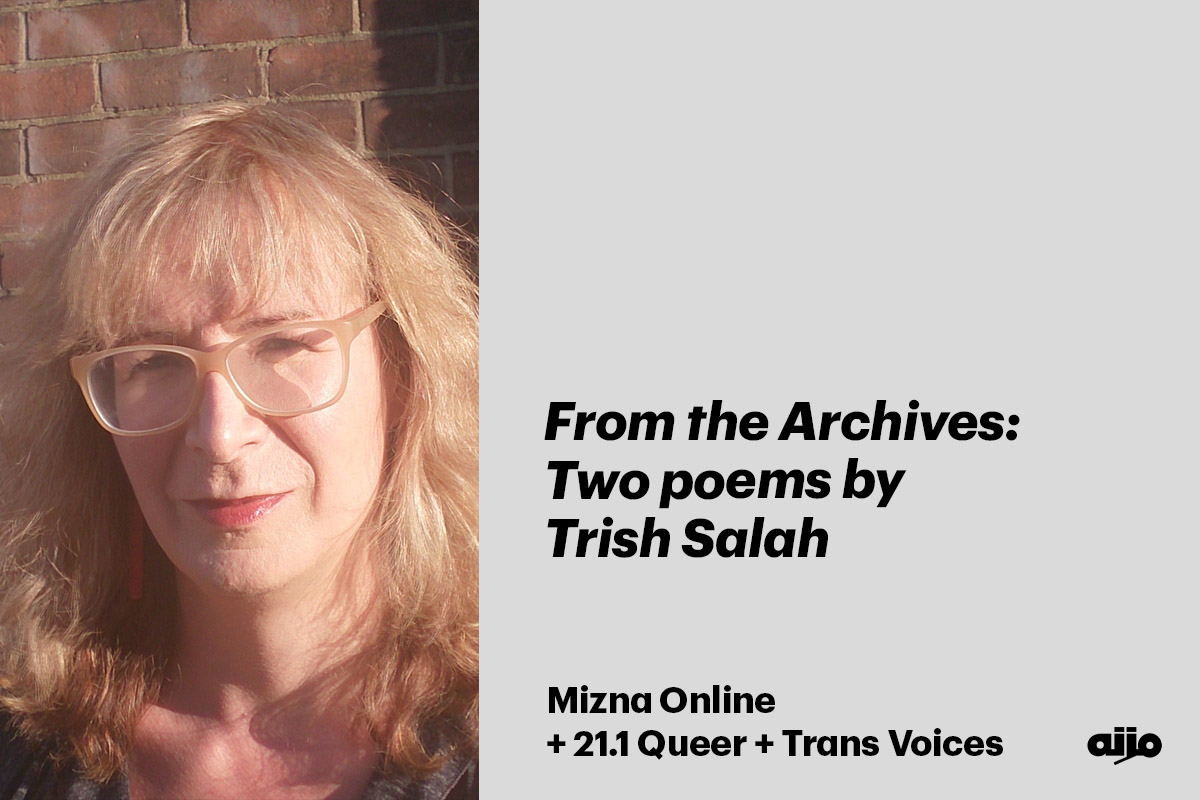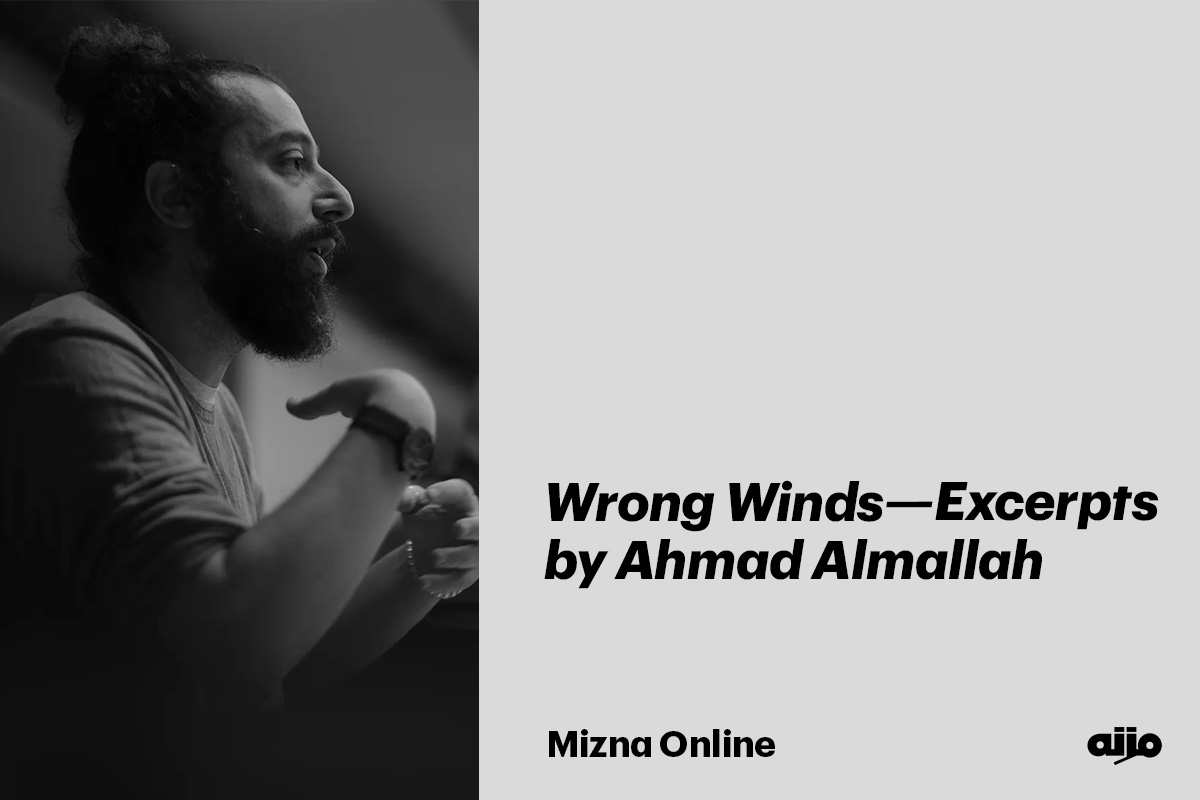
October 28, 2023
The Bringers of Violence
Again, Fanon’s words come to mind: “The town belonging to the colonized people . . . the native town, the Negro village, the medina, the reservation, is a place of ill fame, peopled by men of evil repute. They are born there, it matters little where or how; they die there, it matters not where, nor how.”
Read More
June 14, 2025
To Patrick Swayze, Thanks for Everything! Mejdulene Shomali
the bouncer of my road house heart
my wild Johnny
the first man i thought to love


June 5, 2025
Wrong Winds—Excerpts
I don’t know mainly how
to save myself from my
words: I would want them
all, alive and well, or at
once, all at once, burning.





